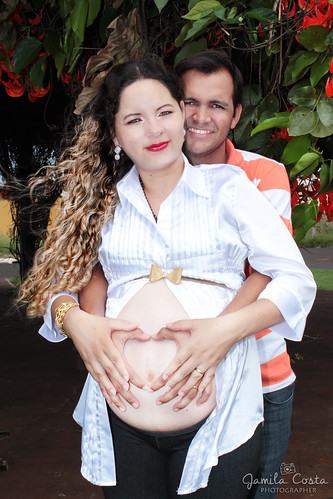Possible Morning Sickness Causes
Posted on Jun 2, 2012 | Blog Posts, Morning Sickness Causes Category | | Print This Article
![]() photo credit: Jamila Costa
photo credit: Jamila Costa
As we’ve talked about in the past, doctors aren’t entirely sure what exactly it is that causes morning sickness. Let’s take a look at some of the most common theories, though, so we can get a better feel for why morning sickness happens and what you might be able to do to prevent it.
Here are some of the possible morning sickness causes:
- Estrogen levels – experts believe it is partly due to an increase in the circulating level of estrogen, a hormone. Estrogen levels may be 100 times higher during pregnancy, compared to levels found in a woman who is not pregnant. However, there is no evidence to show a difference in estrogen levels between pregnant women with nausea and/or vomiting and those without.
- Progesterone levels – when a woman is pregnant her levels of progesterone, another hormone, also rise. High levels of progesterone relax the uterus (womb) muscles to prevent early childbirth. However, it may also relax the stomach and intestines, resulting in excess stomach acids and GERD (gastroesophageal reflux disease, or acid reflux).
- Hypoglycemia – low blood sugar, caused by the placenta draining energy from the mother’s body. However, there are no studies to prove this.
- Levels of human chorionic gonadotropin (hCG) – this is a hormone produced in pregnancy that is made by the developing embryo not long after conception and later by part of the placenta. The hormone is released to prevent the disintegration of the corpus luteum of the ovary, thus maintaining progesterone production which is vital for pregnancy. Some experts suggest there may be a link between hCG and morning sickness.
- Sense of smell – during pregnancy there may be an increase in sensitivity to odors, which may overstimulate normal nausea triggers.
- Evolutionary survival adaptation – some experts suggest that morning sickness may be an evolutionary adaptation which protects pregnant mothers and their babies from food poisoning – an evolved trait that protects the fetus against toxins ingested by the mother. If the woman with morning sickness does not feel like eating foods which may be potentially contaminated, such as poultry, eggs or meat, and prefers foods with a low contamination risk, such as rice, bread and crackers, the survival chances for her and her child are improved.
So, what do you think causes morning sickness?
Top of Page




